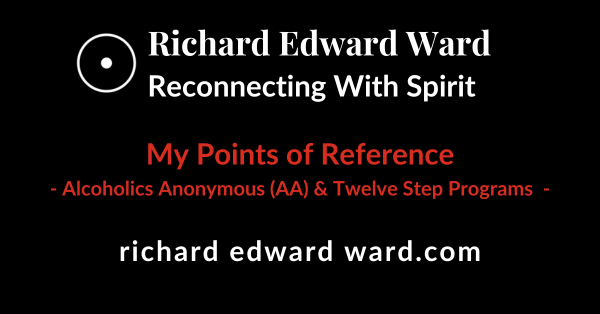Alcoholics Anonymous (AA) and Twelve Step Programs programs provide a spiritual framework for recovery from addiction, and Reconnecting With Spirit.
Alcoholics Anonymous (AA) is a peer-led fellowship founded in 1935 by Bill Wilson and Dr. Bob Smith. It offers a path to sobriety through shared experience, spiritual principles, and mutual support.
Membership is open to anyone with a desire to stop drinking, and there are no fees or formal requirements. AA is not affiliated with any religion, political group, or institution.
The AA approach centres on the Twelve Steps, a set of spiritual and practical actions designed to help individuals recover from alcoholism and transform their lives.
The program emphasizes anonymity, humility, and service. Meetings are held worldwide, both in-person and online, where members share their stories and support one another. AA literature, especially the “Big Book” and “Twelve Steps and Twelve Traditions”, provides guidance and inspiration.
A key feature of AA is sponsorship: experienced members mentor newcomers through the Steps, offering personal insight and accountability.
Over time, AA has inspired dozens of other Twelve Step programs addressing various addictions and compulsive behaviors, all rooted in the same spiritual framework.
The Core of the AA 12-Step Program
At the core of AA’s approach is the 12-step program, which serves as a framework for recovery. The steps encourage members to acknowledge their addiction, seek help, and engage in self-reflection and personal growth. Key steps include:
- Admitting powerlessness over alcohol.
- Believing in a higher power for guidance.
- Making amends for past wrongs.
- Helping others in their recovery journey.
These steps are designed to foster accountability, introspection, and spiritual growth, which are essential for long-term recovery.
Structure of Meetings
Twelve Step meetings are held regularly and can take various forms, including open meetings (welcoming anyone interested) and closed meetings (for those who identify as alcoholics). Meeting can be in person, online or over the telephone.
During these gatherings, participants share their experiences, challenges, and successes in a supportive environment. Meetings often include discussions about the 12 steps, personal stories, and readings from AA literature, such as the “Big Book” and “Twelve Steps and Twelve Traditions.
Sponsorship and Support
A significant aspect of AA and Twelve Step programs is the sponsorship system, where more experienced members (sponsors) guide newcomers through the 12 steps. This mentorship fosters trust and provides additional support, helping individuals navigate their recovery journey.
Effectiveness and Community
Research has shown that participation in AA can be effective in helping individuals achieve and maintain sobriety. The sense of community and belonging that AA provides is instrumental in overcoming addiction, as members support one another in a non-judgmental setting.
The Twelve Steps of Alcoholics Anonymous
- We admitted we were powerless over alcohol—that our lives had become unmanageable.
- Came to believe that a Power greater than ourselves could restore us to sanity.
- Made a decision to turn our will and our lives over to the care of God as we understood Him.
- Made a searching and fearless moral inventory of ourselves.
- Admitted to God, to ourselves, and to another human being the exact nature of our wrongs.
- Were entirely ready to have God remove all these defects of character.
- Humbly asked Him to remove our shortcomings.
- Made a list of all persons we had harmed, and became willing to make amends to them all.
- Made direct amends to such people wherever possible, except when to do so would injure them or others.
- Continued to take personal inventory and when we were wrong promptly admitted it.
- Sought through prayer and meditation to improve our conscious contact with God as we understood Him, praying only for knowledge of His will for us and the power to carry that out.
- Having had a spiritual awakening as the result of these steps, we tried to carry this message to alcoholics, and to practice these principles in all our affairs.
The Twelve Traditions of Alcoholics Anonymous
- Our common welfare should come first; personal recovery depends upon AA unity.
- For our group purpose there is but one ultimate authority—a loving God as He may express Himself in our group conscience. Our leaders are but trusted servants; they do not govern.
- The only requirement for AA membership is a desire to stop drinking.
- Each group should be autonomous except in matters affecting other groups or AA as a whole.
- Each group has but one primary purpose—to carry its message to the alcoholic who still suffers.
- An AA group ought never endorse, finance, or lend the AA name to any related facility or outside enterprise, lest problems of money, property, and prestige divert us from our primary purpose.
- Every AA group ought to be fully self-supporting, declining outside contributions.
- Alcoholics Anonymous should remain forever nonprofessional, but our service centers may employ special workers.
- AA, as such, ought never be organized; but we may create service boards or committees directly responsible to those they serve.
- Alcoholics Anonymous has no opinion on outside issues; hence the AA name ought never be drawn into public controversy.
- Our public relations policy is based on attraction rather than promotion; we need always maintain personal anonymity at the level of press, radio, and films.
- Anonymity is the spiritual foundation of all our traditions, ever reminding us to place principles before personalities.
The Twelve Promises of Alcoholics Anonymous
- We are going to know a new freedom and a new happiness.
- We will not regret the past nor wish to shut the door on it.
- We will comprehend the word serenity.
- We will know peace.
- No matter how far down the scale we have gone, we will see how our experience can benefit others.
- That feeling of uselessness and self-pity will disappear.
- We will lose interest in selfish things and gain interest in our fellows.
- Self-seeking will slip away.
- Our whole attitude and outlook upon life will change.
- Fear of people and of economic insecurity will leave us.
- We will intuitively know how to handle situations which used to baffle us.
- We will suddenly realize that God is doing for us what we could not do for ourselves.
These promises serve as a guide for individuals in recovery, highlighting the positive changes that can occur through the AA program.
Beyond Alcohol: The Twelve Step Legacy
The Twelve Step model pioneered by AA has become a universal framework for recovery. Programs like Narcotics Anonymous, Overeaters Anonymous, Gamblers Anonymous, and Al-Anon have adapted the Steps to address a wide range of addictions and relational challenges. Each group retains the spiritual essence of AA while tailoring its language and focus to its members’ needs.
The enduring power of the Twelve Steps lies in their simplicity and depth. They invite individuals to confront their past, cultivate humility, and build a life of integrity and service. For many, AA is not just a path to sobriety, it’s a way of life.
Twelve Step Programs and Their Official Resources
- Alcoholics Anonymous (AA) – For recovery from alcoholism
- Narcotics Anonymous (NA) – For recovery from drug addiction
- Al-Anon Family Groups – For families and friends of alcoholics
- Overeaters Anonymous (OA) – For recovery from compulsive eating
- Gamblers Anonymous (GA) – For recovery from gambling addiction
- Sex Addicts Anonymous (SAA) – For recovery from sexual addiction
- S-Anon – For family and friends of sex addicts
- Debtors Anonymous (DA) – For recovery from compulsive debt and spending
- Co-Dependents Anonymous (CoDA) – For recovery from codependency
- Marijuana Anonymous (MA) – For recovery from marijuana addiction
- Crystal Meth Anonymous (CMA) – For recovery from crystal meth addiction
- Nicotine Anonymous – For recovery from nicotine addiction
Summary
In summary, Alcoholics Anonymous and related Twelve Steps programs operate as a supportive fellowships that utilize a structured 12-step program to help individuals recover from alcohol and other addictions, emphasizing community, personal growth, and accountability.
My Points of Reference

Explore with Richard
- Welcome
- About Richard
- Reconnecting With Spirit.
- Richard's YouTube Channel
- Recordings by Richard
- Merch by Richard
- Intuitive Counselling Services
- Explore My Spiritual Paths.
- Explore My Teachers, Guides, and Mentors.
- Explore My Recommended Reading, Listening, Watching.
- Explore Self-Healing Tools & Techniques.
- Explore Intuition & Divination Systems.
- Explore Health Issues and Info.
- Explore My 365 Daily Inspiration.
- Explore Posts.
- Explore Pages.
"Be practical and expect miracles when you just take the first step forward every day." -Richard Edward Ward


